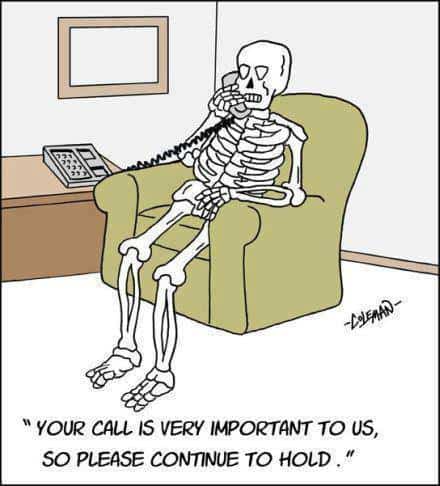 Charter’s Spectrum customers will be waiting a long time for service credit if their cable service has been out as a result of the recent hurricanes in Texas and Florida.
Charter’s Spectrum customers will be waiting a long time for service credit if their cable service has been out as a result of the recent hurricanes in Texas and Florida.
The cable company, while trying to fend off increasing criticism for its mysterious service restoration effort, is also in no mood to compensate customers for weeks-long outages, unless they specifically ask.
The Orlando Sentinel has joined the story the Miami Herald started writing a week earlier. Customers are not impressed with Charter’s response to Hurricane Irma and they want a refund and some answers.
The cable company, which dominates the central Florida cities of Orlando and Tampa that used to be Bright House Networks’ territory, is being blasted for “vague repair timelines” and a bad attitude.
Bob Rader went without service for a week after the storm ripped through the region early Sept. 11. Adding to the 80-year-old’s frustrations are the tough time he has had getting answers from the company, he said.
“At first, they made me feel optimistic because they seemed to know there were people in my neighborhood without service,” he said. “Then, every other time, I got wrapped into a maze of telephone button punching.”
Spectrum representatives have made it clear the only way customers are going to get credit for service lost during Irma is if they contact the company and ask for it, which is easier said than done.
Jenny Paterson told Stop the Cap! she has tried to call more than a dozen times, but the hold times are so severe, she is afraid her cell phone battery will die before she gets to talk to anyone.
“I am not using my minutes up waiting on hold with them and they never call you back,” Paterson claims. “I’ve tried just about everything and the local cable store wants you to call in too.”
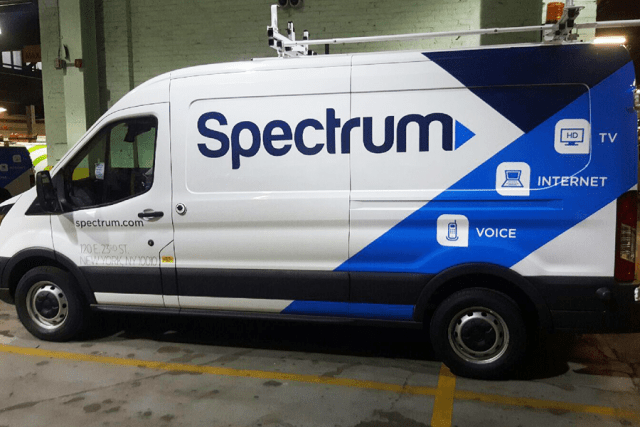
Customers claim seeing one of these trucks is a rarity in central Florida.
She has been without service for more than a week and “nobody knows nothing about anything,” in response to questions about when she’ll get her service back.
“The impact of this monster storm was felt across Florida and in some areas worse than others,” Charter spokesman Joe Durkin offered shortly after the storm.
“Obviously,” responds Paterson. “I could tell you that. But what Mr. Durkin and I share in common is the fact neither one of us have any idea when the company he works for might be by my neighborhood to take a look and fix things. We’re more likely to spot a UFO than a Spectrum truck around here.”
The Sentinel notes a lot of business customers who bought Spectrum’s “business class” service are now regretting it as outages cost them customers.
Bob Patterson, who runs a Sunoco gas station in College Park, estimates he has lost $10,000 because customers leave when they find out he can only accept cash. His credit card terminals, which depend on Spectrum’s internet service, are not working. He has made an effort to collect some credit card numbers from customers and manually process the transactions from his home at the end of the night, but that isn’t a good substitute for a difficult situation.
What infuriates Patterson, who is not related to Ms. Paterson, is that the cable company is rubbing salt in his wounds.
“It doesn’t work all week, then you call their number and it says the best way to reach them is on the Internet,” said Patterson. “But guess what? We don’t have any Internet.”
Oddly and without any explanation, the FCC stopped asking utilities to report their outage numbers related to Hurricane Irma on Sept. 18, despite the fact its last report on that same day indicated at least 893,409 customers were without cable or phone service because of Irma. With the FCC no longer releasing outage data, service providers have refused to pick up the slack, claiming outage details are “proprietary business information.”


 Subscribe
Subscribe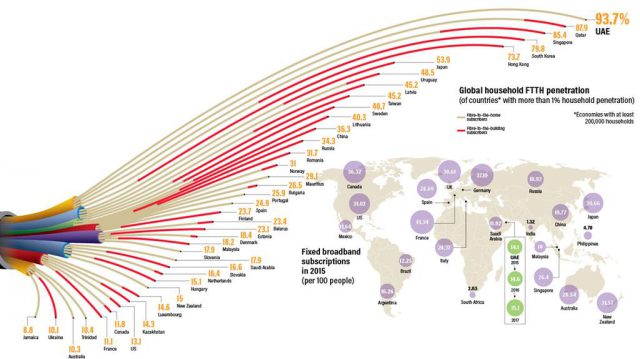
 Verizon Communications will decommission its existing copper wire facilities in multiple markets in Delaware, Maryland, Massachusetts, New Jersey, New York, Pennsylvania, Rhode Island, and Virginia starting in 2018.
Verizon Communications will decommission its existing copper wire facilities in multiple markets in Delaware, Maryland, Massachusetts, New Jersey, New York, Pennsylvania, Rhode Island, and Virginia starting in 2018.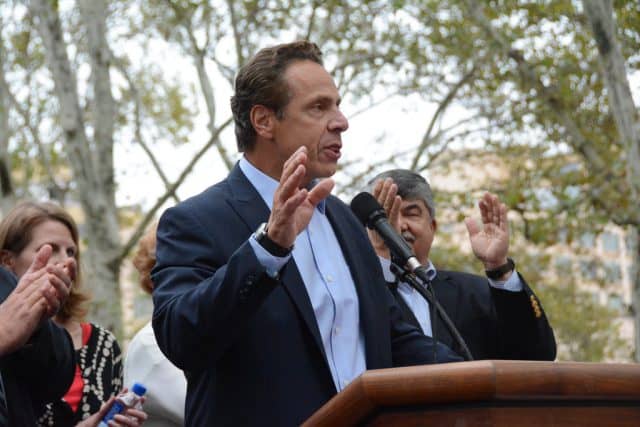
 Spectrum customers in Manhattan, parts of Brooklyn, and Queens are decidedly caught in the middle, enduring more than 130 outages — some taking out service for hours, as a result of alleged repeated vandalism the company suspects is caused by striking workers. But the union notes Charter’s replacement workers are often unqualified, some taking hours to manage repairs that would “take us 10 minutes.” When Charter doesn’t have enough workers on hand to manage a repair, they call in third-party contractors. Some of them were on hand to deal with fiber optic cable cuts that took out Spectrum service for tens of thousands of customers, often in Queens and Brooklyn.
Spectrum customers in Manhattan, parts of Brooklyn, and Queens are decidedly caught in the middle, enduring more than 130 outages — some taking out service for hours, as a result of alleged repeated vandalism the company suspects is caused by striking workers. But the union notes Charter’s replacement workers are often unqualified, some taking hours to manage repairs that would “take us 10 minutes.” When Charter doesn’t have enough workers on hand to manage a repair, they call in third-party contractors. Some of them were on hand to deal with fiber optic cable cuts that took out Spectrum service for tens of thousands of customers, often in Queens and Brooklyn.
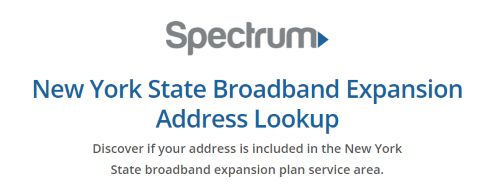
 As a result, Charter has been forced to place $13 million in an escrow-type account that New York can tap into in amounts of up to $1 million increments to penalize the company for further delays. Charter can win back all $13 million if it stops missing its six-month buildout targets. Each time it does miss a deadline, the State reserves the right to withdraw funds in amounts that will vary based on the seriousness of the violation. Some forfeited funds will be used to acquire computers and internet training for low-income New Yorkers. The rest will be channeled into New York’s general fund.
As a result, Charter has been forced to place $13 million in an escrow-type account that New York can tap into in amounts of up to $1 million increments to penalize the company for further delays. Charter can win back all $13 million if it stops missing its six-month buildout targets. Each time it does miss a deadline, the State reserves the right to withdraw funds in amounts that will vary based on the seriousness of the violation. Some forfeited funds will be used to acquire computers and internet training for low-income New Yorkers. The rest will be channeled into New York’s general fund.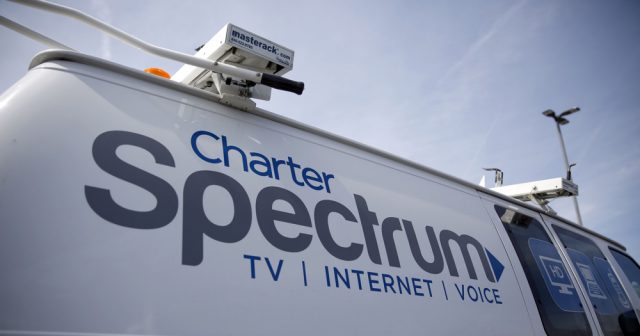 “Build plans, timelines, and all other information provided are subject to change and areas designated for build may not be built,” the website states.
“Build plans, timelines, and all other information provided are subject to change and areas designated for build may not be built,” the website states.